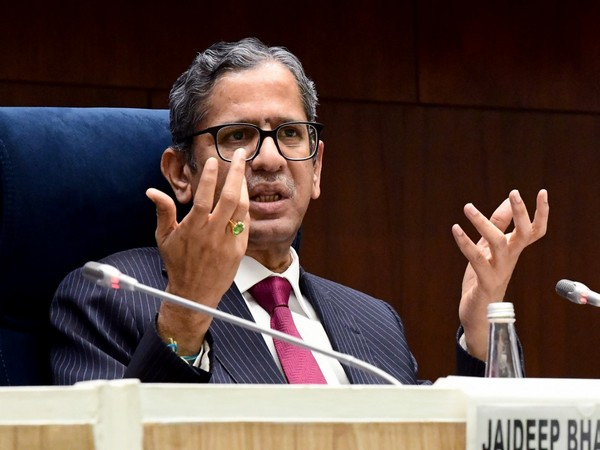
Picture : Twitter / ANI
It is imperative for a healthy democracy that people feel their rights and dignity are recognised and protected, Chief Justice of India N V Ramana said on Saturday, stressing that denial of justice would ultimately lead to anarchy.
As per report by PTI, Addressing a function in Srinagar, the CJI urged lawyers and judges to create a congenial environment for litigants who are often “under a lot of psychological stress”.
He lamented that the justice delivery mechanism in India is very “complex and expensive” and the country is far behind in making courts inclusive and accessible.
“For the functioning of a healthy democracy, it is imperative that the people feel that their rights and dignity are protected and recognised. Expeditious adjudication of disputes is the hallmark of a healthy democracy.
“Denial of justice would ultimately lead to anarchy. Soon the institution of the judiciary would be destabilised as people will look for extrajudicial mechanisms,” the CJI said.
The Chief Justice of India was here to lay the foundation stone of the new complex for the High Court of Jammu and Kashmir and Ladakh.
“Peace shall only prevail when people’s dignity and rights are recognised and protected,” he said.
Chief Justice Ramana said in India, the courts have the constitutional duty of adjudication of rights and upholding the aspirations of the Constitution.
“One of the major challenges to the protection of rule of law and human rights is the inability of the formal justice system to deliver speedy and affordable justice to all. The justice delivery mechanism in India is very complex and expensive,” he said.
He said the judiciary must be at its innovative best to ensure that the challenges to its working are met with just and Constitutional measures.
“Technology has been a strong aid to the judiciary. Now, virtual courts are bridging the gaps of accessibility by reducing time, cost and distance. But in a country like India, where a vast digital divide still exists, much needs to be done in order to harness the full potential of technological innovations,” he added.
The Chief Justice of India expressed happiness after laying the foundation stone of the new high court complex in Srinagar.
“Solving the problems of infrastructure is very close to my heart. I have consistently emphasised the need for the development and modernisation of infrastructure. Sadly, post-independence, judicial infrastructure has not been overhauled to meet the demands of the growing needs of modern India.
“We are far behind in making our courts inclusive and accessible. If we don’t attend to this urgently, the Constitutional ideal of access to justice would stand defeated,” he said.
[the_ad id=”41101″]


















